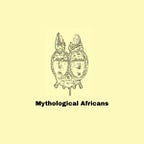Who Will Tell Your Story?
Whether they are statements of historical fact or molded from our wildest imaginations, the stories we tell ourselves about who we have been, who we are, and who we could be, have the power to determine who we actually become. This is the power of storytelling, a power born on the African continent with the first humans who stood up straight and contemplated the world above, below and around them. A power which spread across the world with human migrations as myths, folklore, and history. A power which continues to shape the human experience. A power which can be harnessed for the highest good or the lowest evil. A power which can make civilizations or break them.
A power which we all wield as creators and consumers of media.
Viola Davis’ The Woman King is a story about the Agojie, the woman-only military regiment of the Kingdom of Dahomey. The Agojie are, like most historical actors, complex. There is as much to celebrate in their story as there is to denigrate: they were fierce protectors of the Dahomey Kingdom, participants in the slave trade, key players in Dahomey political drama and so much more.
While we don’t know what the full story will be, the trailer caused a lot of buzz, and we know the sound of this buzz will be deafening once the movie premieres on September 16th. We want this to be a productive buzz. A buzz created by the sound of a people reckoning with a difficult history and emerging from it with resolve to see a different future happen.
“The Woman King or The King’s Women? Gender and Power in the Dahomey Kingdom” is a gathering intended to open and hold space for this buzz. On Sunday, September 18th, we will come together on Twitter Spaces, prepared with knowledge, open hearts and gently held good intentions. We will talk about what we saw in the movie and what we know from history. We might laugh (I certainly hope we do!), we might cry, we might argue, we might disagree, but, hopefully, we will emerge seeing ourselves more clearly, and equipped with stories to shape a different future.
The Reading List
We have curated a list of recommended reading which delves into the lives of women in the Dahomey Kingdom. This is not a conclusive list so check back often for updates. Where possible we have provided links for free access to the readings. If you would like a chance to win tickets to see the movie or a copy of any of the books on the list, LIKE and RETWEET this announcement on Twitter. We will announce winners on Sundays each week.
Recommended Reading
1. “Wives of the leopard: gender, politics, and culture in the Kingdom of Dahomey.” by Edna G. Bay (Available to Win)
2. “Mother Is Gold, Father Is Glass: Gender and Colonialism in a Yoruba Town.” by Lorelle D Semley (Available to Win)
3. “A Yoruba Woman Remembers Servitude in a Palace of Dahomey, in the Reigns of Kings Glele and Behanzin.” by Peter Morton-William
4. “Recognition of the Place of Women in 19th-Century African Warfare: A Study of the Amazons of Dahomey” by Mohammed Liman Murtala, Maryam Hamza & Anas Lawal
5. “Belief, Legitimacy and the Kpojito: An Institutional History of the ‘Queen Mother’ in Precolonial Dahomey.” by Edna G. Bay
6. “Dahomey: an ancient west African kingdom” by Melville Herskovits
7. “The Amazons of Dahomey” by Agbenyega Adedze (The PDF is not publicly available but if you can access it, it is a great read and includes references to other sources of information about the Ahosi.)
8. “Amazons of Black Sparta : The Women Warriors of Dahomey” by Stanley B. Alpern
See you there!
